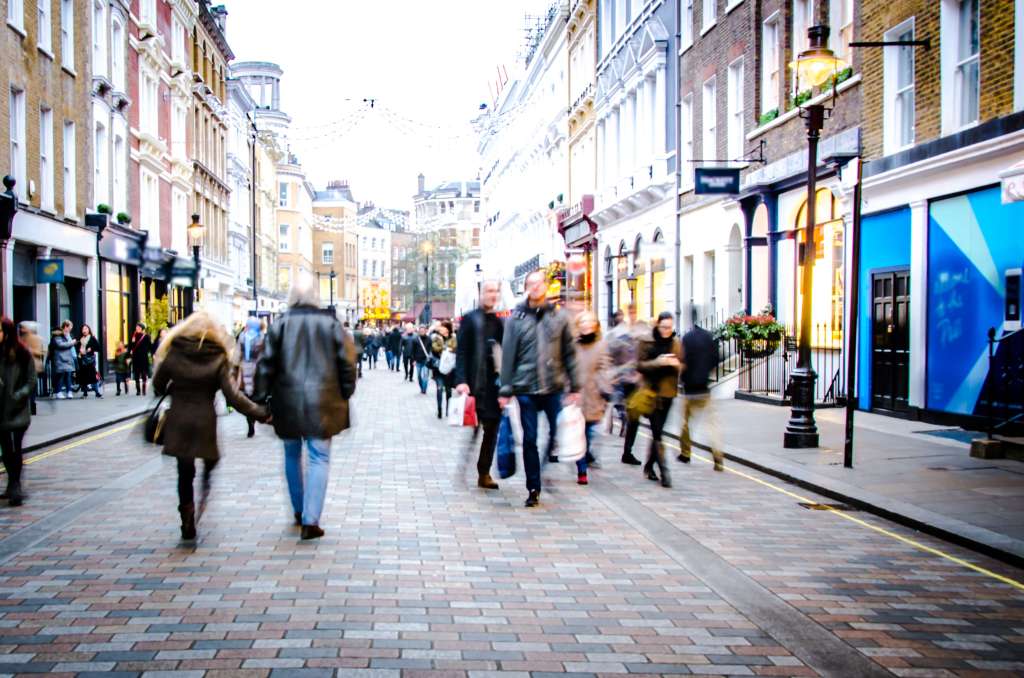Britain’s high street businesses are struggling to survive in today’s economic climate, according to new research from Simply Business.
Reduced consumer spending, inflation, and the increasing cost of staff – the financial pressure of running a high street business has put many on a cliff edge.
Our 2025 SME Insights Report found over half (63 per cent) of small businesses believe the high street as we know it will be obsolete in the next 10 years.
Following a survey of more than 2,000 small business owners, the report reveals some of the biggest challenges they’re facing and how the government can do more to help.
Worryingly, it found 37 per cent of high street shop owners are planning to close or sell their business in 2025. Falling footfall and high business rates are just some of the reasons cited for this decline.
Those surveyed shared some of the key challenges leading to high street businesses closing:
- soaring costs of running a business (52 per cent)
- reduced consumer spending (29 per cent)
When asked what could help keep their businesses open long term, a third (34 per cent) stated lower overheads, while almost half (45 per cent) said an increase in customers.
How government action could help
Though the issues each business faces can vary, there are practical actions that would offer some relief to almost all.
When asked what the most important action the government could take to better support them, small business owners told us:

24%
Reduce business rates for high street businesses

27%
Government actively incentivising people to shop locally with small businesses

16%
Increase tax for big online retailers and national chains
Evolving the high street
The high street might need to evolve if it’s to truly thrive.
When asking business owners what would make them more likely to visit their local high street:
- 61 per cent said more independent businesses and fewer chains
- 58 per cent said free or cheap parking
- 50 per cent said a wider variety of things to do
Rising energy bills making things tighter
Mark Maciver, owner of barber shop Slider Cuts, said: “Rising costs have definitely affected our business – particularly energy costs. One month we were paying £250, the next it was £1,300, then £1,200. It was all over the place.
“When you have a business where you’re not making that much profit, when things go up, it can make things a lot tighter.
“One way the government could help me, and other small businesses right now, would be easier access to funding”.
‘A worrying look to the future’
Simply Business UK CEO, Julie Fisher said: “The UK’s high streets are an important part of British culture. These vital hubs provide essential services and are crucial for the UK economy – but high street businesses have made clear the stark reality.
“Our annual SME Insights Report has revealed almost three quarters (74 per cent) have seen customer numbers decline. And in a worrying look to the future, 63 per cent think the UK high street has just 10 years left before it becomes obsolete.
“Seeing so many SMEs across the UK struggling is a serious cause for concern, not just for the founders of these businesses but for the British economy and our wider communities. SMEs provide over £2.8 trillion in annual turnover, and account for over half (60 per cent) of private sector employment. Our high street businesses play a key part in these figures.
“From reduced business rates to initiatives that increase footfall, we encourage the government to acknowledge the fears of Britain’s inspiring entrepreneurs and hear their calls for support.”
News and guides for small businesses
- Small business tax changes
- Rising costs force small businesses to increase their prices
- How to use SEO to improve a small business
- How to tell your customers about a price increase
